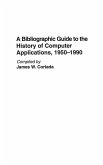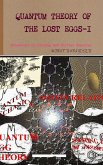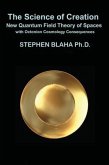Quantum mechanics is one of the great success stories of modern physics, making sense of the very small just as Einstein's theory of relativity made sense of the very large. But, for most students, the ideas that make quantum mechanics powerful can be confusing and counterintuitive. This volume in the Greenwood Guides to Great Ideas in Science series provides a history of quantum mechanics from the early breakthroughs of Planck and Einstein, at the beginning of the 20th century, to the present frontiers of quantum computing and quantum gravity. The approach is entirely non-technical, and is aimed at the general reader who may not have much mathematical background but who has a strong curiosity about some of the most important developments in modern science. Quantum Mechanics: A Historical Perspective traces the history of this powerful theory, including: ; The early discoveries by Max Planck and Albert Einstein regarding the quantization of radiation ; The early quantum theory, including Neils Bohr's theory of the atom ; The birth of modern quantum mechanics through the work of Heisenberg, Schrodinger, Born, Dirac and others ; Applications of quantum mechanics in chemistry, nuclear physics, electronics, and many other areas ; Recent work in quantum computation and quantum information theory The book emphasizes the fact that despite the great success of quantum mechanics, many exciting intellectual frontiers remain open for further researchers to explore. It includes a glossary, a timeline, and a bibliography of accessible resources for further research.
Hinweis: Dieser Artikel kann nur an eine deutsche Lieferadresse ausgeliefert werden.
Hinweis: Dieser Artikel kann nur an eine deutsche Lieferadresse ausgeliefert werden.









